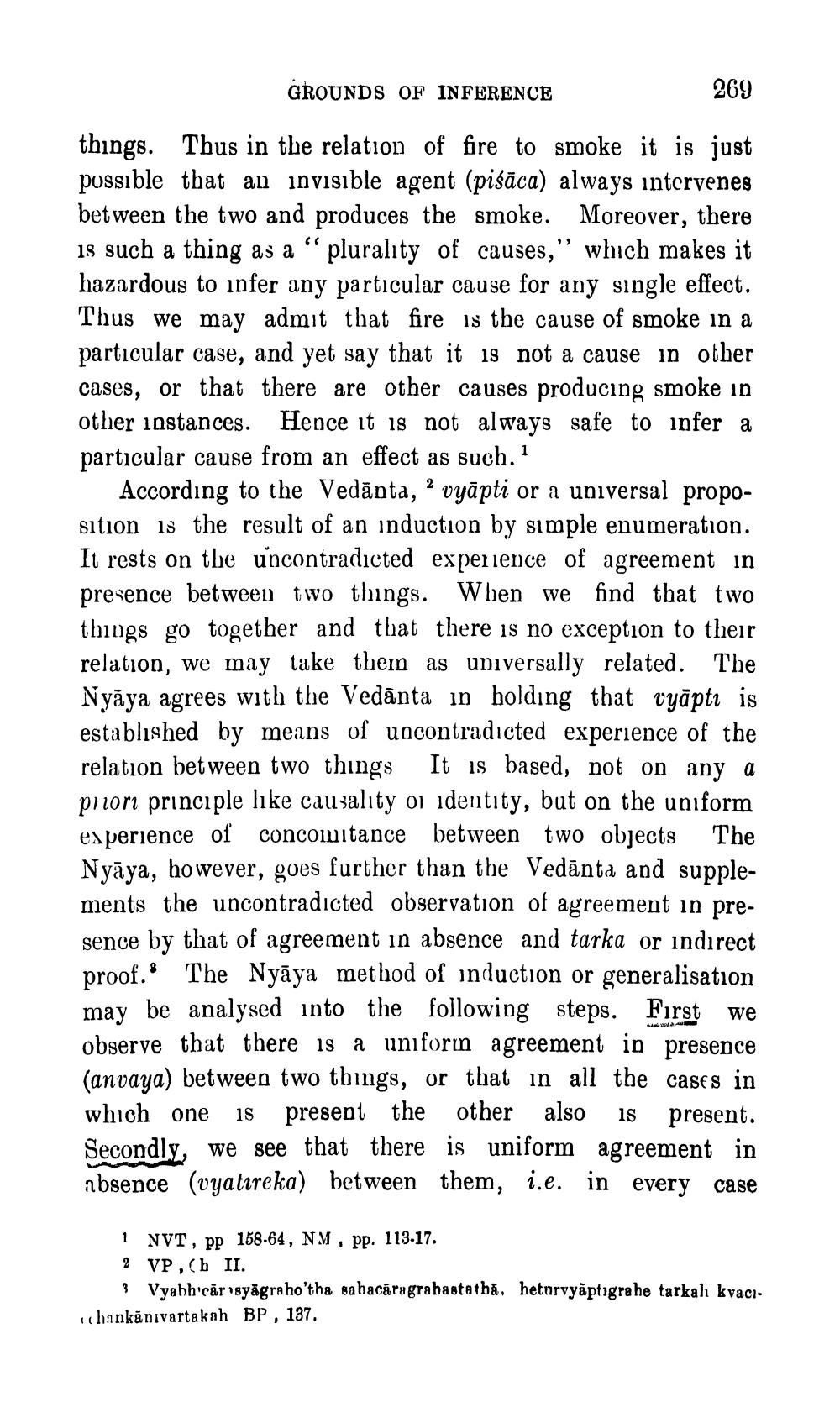________________
GROUNDS OF INFERENCE
269
things. Thus in the relation of fire to smoke it is just possible that an invisible agent (piśāca) always intervenes between the two and produces the smoke. Moreover, there is such a thing as a "plurality of causes," which makes it hazardous to infer any particular cause for any single effect. Thus we may admit that fire is the cause of smoke in a particular case, and yet say that it is not a cause in other cases, or that there are other causes producing smoke in other instances. Hence it is not always safe to infer a particular cause from an effect as such.
According to the Vedānta, 2 vyāpti or a universal proposition is the result of an induction by simple enumeration. It rests on the uncontradicted experience of agreement in presence between two things. When we find that two things go together and that there is no exception to their relation, we may take them as universally related. The Nyāya agrees with the Vedānta in holding that vyāpti is established by means of uncontradicted experience of the relation between two things It is based, not on any a priori principle like causality oi identity, but on the uniform experience of concomitance between two objects The Nyāya, however, goes further than the Vedānta and supplements the uncontradicted observation of agreement in presence by that of agreement in absence and tarka or indirect proof.' The Nyāya method of induction or generalisation may be analysed into the following steps. First we observe that there is a uniform agreement in presence (anvaya) between two things, or that in all the cases in which one is present the other also is present. Secondly, we see that there is uniform agreement in absence (vyatıreka) between them, i.e. in every case
1 NVT, pp158-64, NM, pp. 113-17. 2 VP,(b II.
3 Vyabh'cārvsyāgra ho'tha sahacāragrahastatbå, hetnrvyaptigrahe tarkah kvacichankänivartakah BP, 137.




